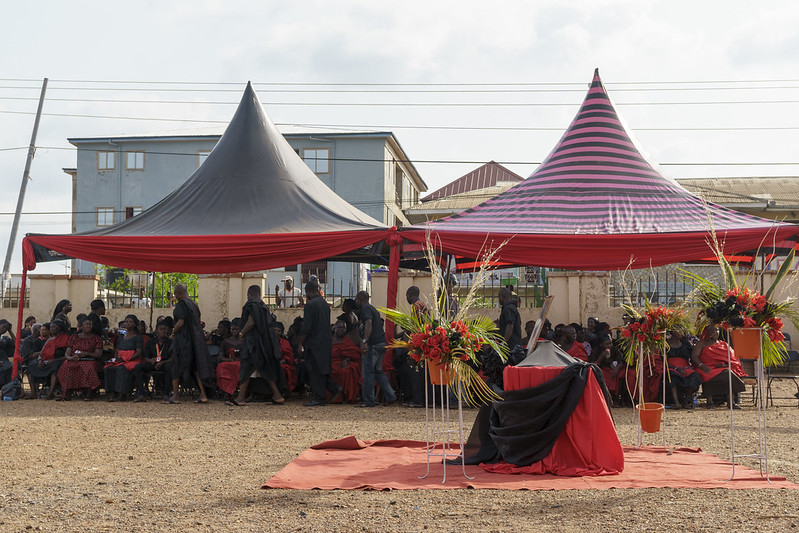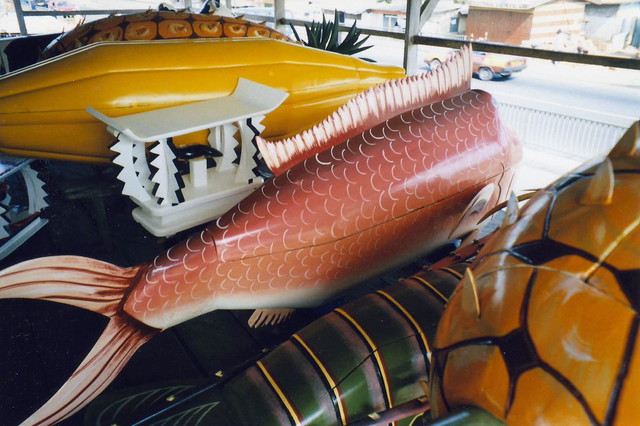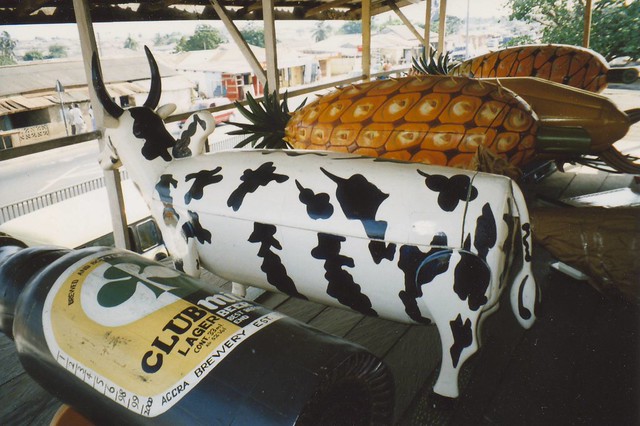Ghana Entertainment Funerals
In Ghana, the most significant cost you are going to incur in your life is not going to be your wedding, it is going to be your funeral.

Ghana Elaborate Funerals And Decorative Funeral Coffins
Explore and Understand Africa Through Her Food and Culture
10-9-2017
Ghana, Africa where funerals are world-renowned for their size and extravagance.
Ghana Funeral
Ghana population is comprised of 71 percent Christian, funerals usually begin with religious blessings, rituals, ceremonies, and words of remembrance, but that is just the beginning.Funerals in Ghana are very much a social event attended by a large number of mourners, which could reach hundreds. When death comes, it concerns everybody in the Ghanaian community and a well-attended funeral carries great social prestige and the bigger the party, the better.

Funeral Money for Ghanaians
Ghanaians may spend as much money on funerals as on weddings, sometimes even more. It is believed that the dead person leaves the physical world for the spiritual world. Therefore, when a person dies, the Ghanaians believe that the departed is making a journey to the next world, where he will live as an ancestor.An average funeral should cost between $6,000 - $20,000. That includes flamboyant coffin-carrying dancers, billboards, online advertisements and flyers that announce funeral arrangements and placed in strategic spots for everybody to see; all are invited whether they knew the dearly departed.
The families of the dead are expected to provide food, drinks, music, and dance in excess. Most funerals are held on the weekends, with mourners, usually dressed in black or black and red traditional funeral clothing. There may or may not be a body present or a clergyman but disc jockeys, photographers, videographers, bartenders and security guards are crucial for a successful funeral. 
Coffins are a statement in Ghana
Coffins can reflect occupations, tribal symbols, or just what the deceased enjoyed most in life. A design coffin is best not hidden inside a hearse, but carried above heads or driven down Ghana’s streets. They are usually brightly colored and elaborate. They may have fanciful shapes that resemble the dead's favorite objects or represent their profession.Thus, a mechanic may have a coffin shaped like a wrench or a fish for fishermen. There are also caskets shaped like Coca-Cola bottles, cocoa pods, pineapples, and airplanes. To Ghana, funerals are a celebration and one famous coffin maker is Eric Adjetey Anang is from Teshie, a suburb of the city of Accra who owns the Kane Kwei Carpentry Workshop in Ghana. Anang’s striking, elaborate design coffins can be almost anything imagined.
Did you know?
Ghana population is young with approximately 57 percent of the population under the age of 25. Religions in Ghana from 2010 estimates are Christian 71.2 percent, Muslim 17.6 percent, traditional 5.2 percent, other 0.8 percent, and unknown 5.2 percent.Ghanaians may spend as much money on funerals as on weddings, sometimes even more.
Together we build awareness that boost harmony, education, and success, below are more links to articles you will find thought provoking.
- Deadliest routes for refugees
- Cooking with shea butter oil
- Worst serial killers recorded in history are women
- Indigenous healers and plants used
- Night running illness or magic
- What is back to Africa



























